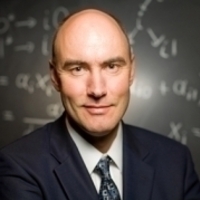Menu
- Undergraduate
- Graduate
- Research
- News & Events
- People
- Inclusivity
- Jobs
Back to Top Nav
Back to Top Nav
Back to Top Nav
Cooperation means that one individual pays a cost for another to receive a benefit. Cooperation can be at variance with natural selection. Why should you help competitors?

Cooperation means that one individual pays a cost for another to receive a benefit. Cooperation can be at variance with natural selection. Why should you help competitors? Yet cooperation is abundant in nature and is important component of evolutionary innovation. Cooperation can be seen as the master architect of evolution, as the third fundamental principle of evolution beside mutation and selection. I will present five mechanisms for the evolution of cooperation: direct reciprocity, indirect reciprocity, spatial selection, group selection and kin selection. Direct reciprocity means there are repeated interactions between the same two individuals and my behavior towards you depends on what you have done to me. Indirect reciprocity means there are repeated interactions within a group and my behavior towards you also depends on what you have done to others. Indirect reciprocity is the key mechanism for pro-social behavior in humans and has selected for social intelligence and human language.
Further reading:
Speaker bio: Professor Nowak is one of the most successful mathematical biologists in the world and also a terrific speaker. He works on evolutionary dynamics and evolutionary game theory, including the evolution of cooperation and human language, as well as the dynamics of virus infections and human cancer. Nowak is the author of over 400 papers and four books, including 54 papers in Nature, 18 papers in Science, and more than 50 papers in PNAS. His work has been cited more than 94,000 times, and his H-index = 136. His textbook Evolutionary Dynamics (2006) provides an overview of the powerful yet simple laws that govern the evolution of living systems. His general audience book SuperCooperators (2011) argues that cooperation is the third fundamental principle of evolution beside mutation and selection.
https://www.math.dartmouth.edu/activities/kemeny-lectures/
Events are free and open to the public unless otherwise noted.